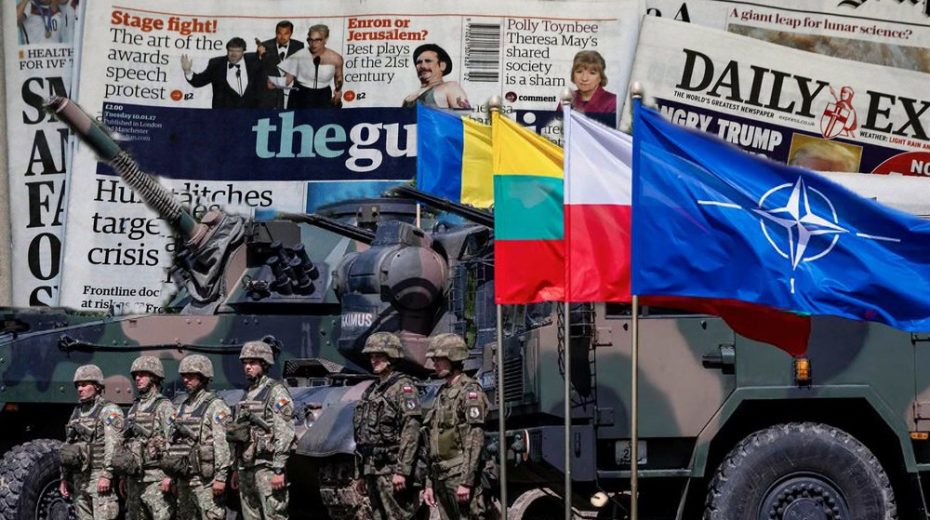
By Ted SNIDER
While campaigning, Donald Trump promised he could halt the war in Ukraine within 24 hours of his election and before assuming office. Achieving peace has turned out to be far more complex.
Responsibility for the conflict’s continuation has often shifted between Ukrainian President Volodymyr Zelensky and Russian President Vladimir Putin. As a resolution remains distant, blame is increasingly being directed toward less obvious parties.
In late August, Axios reported that “some U.S. officials have begun to see European leaders as a major obstacle.” Although the U.S. and Europe are allies on Ukraine, White House insiders claim that, while these leaders publicly endorse President Trump’s peace efforts, they are “quietly trying to undo [it] behind-the-scenes.”
According to these officials, European leaders encourage Ukraine to hold out for a “better deal” and maintain demands for “unrealistic territorial concessions by Russia.”
European officials have reacted with surprise to the U.S. stance, though this reaction is hardly unexpected. Assigning all blame to a single party is unwarranted, and attributing some of the responsibility to European leaders is reasonable.
European leaders have urged Ukraine to maintain maximalist positions that no longer align with the present realities. For instance, they persist in pushing for NATO membership for Ukraine despite Trump’s veto and Russia’s refusal to cease hostilities unless such demands are dropped. Even the Biden administration and European nations have hesitated to seriously entertain NATO expansion beyond rhetoric, a position Ukraine quietly accepts.
Europeans also insist on security guarantees akin to Article 5, supported by European troops stationed in Ukraine and backed by American forces. However, three issues undermine this proposal. First, Russia’s war aims included preventing NATO’s expansion into Ukraine. Although Moscow has not rejected security guarantees entirely, it consistently opposes this particular model. As recently as late August, Moscow stated that NATO’s military infrastructure advancing into Ukraine was a root cause of the conflict and expressed a negative view toward such discussions. Second, Washington has ruled out deploying ground troops—a core part of the plan Europe admits is necessary. Third, parts of Europe lack willingness to commit boots on the ground, while others acknowledge shortfalls in forces and funding.
European leaders have also insisted Ukraine refuses any territorial concessions to Russia, which presents three further challenges. The Trump administration asserted Ukraine would need to relinquish some territory, Russia demands this for ending the conflict, and Ukraine acknowledges it cannot avoid such concessions. Zelensky has stated that Crimea’s return can only be achieved “diplomatically,” and admitted parts of the Donbas are de facto lost to Ukraine despite not recognizing this legally.
Given Europe’s insistence on unattainable maximalist terms before any peace, it is understandable that “White House officials are losing patience with European leaders” and “[f]rustrated Trump aides contend the blame should fall on European allies, not on Trump or even Russian President Vladimir Putin.”
Blame is also increasingly aimed at Ukraine, where ultra-nationalists—despite their relatively small numbers—wield disproportionate influence and are viewed as barriers to peace.
If Zelensky were to retreat from Ukraine’s maximalist demands, he risks deadly repercussions from nationalist factions. When Zelensky attempted to fulfill his 2019 campaign promise to advance the Minsk Agreement and seek peace with Russia, he faced a nationalist backlash. Dmytro Yarosh, founder of the ultra-nationalist Right Sector paramilitary, warned that fulfilling his pledge would cost Zelensky his life: “He will hang on some tree on Khreshchatyk boulevard if he betrays Ukraine and those people who died in the Revolution and the War. And it is very important that he understand this.”
This reality remains unchanged. In an interview with the Sunday Times published on August 22, Serhii Sternenko, a former Odessa Right Sector leader, stated that “If Zelensky were to give any unconquered land away, he would be a corpse — politically, and then for real.”
Shortly after, Andriy Parubiy was assassinated in Lviv. In Frontline Ukraine, Richard Sakwa identifies Parubiy as a co-founder of “the militantly nationalist Svoboda party,” known for “openly revolutionary ultranationalism” and a commitment to a “violent takeover of power in the country.” Parubiy became commandant of the self-defense committee during the 2014 Maidan protests, which led to the coup ousting Viktor Yanukovych. Subsequently, he was appointed secretary of the National Security and Defense Council, controlling Kiev’s security policy and associated with multiple violent incidents and massacres.
The assassination of a top ultra-nationalist only days after Sternenko’s death threat against Zelensky may be coincidental. Several hypotheses exist regarding Parubiy’s death. Ukrainian police claim the attack was deliberate and linked to Russia, although the detained suspect denies recruitment by Russian agents.
The most plausible explanation is that rival ultra-nationalists were responsible. Nicolai Petro, author of The Tragedy of Ukraine, explained that “political assassinations are something of a tradition among right wing political groups in Ukraine,” used to “clean house” internally and remove ideological opponents. Petro believes Parubiy’s death fits this pattern.
A speculative third theory draws on Parubiy’s Maidan background, suggesting Kyiv’s authorities eliminated the most capable figure in organizing protests or coups amid ultra-nationalist threats of uprising.
Alex Vershinin recently highlighted that the Azov Corps and its affiliates—the military arm of Ukraine’s ultra-nationalist faction—have grown to 20,000–40,000 troops, about 10% of Ukraine’s armed forces. Vershinin notes that due to its size and position as one of Ukraine’s last combat-ready units, Azov wields significant influence in peace negotiations, effectively holding veto power over policy decisions.
While blame can be broadly shared, including on Putin and Zelensky, as diplomatic talks become increasingly stalled, attention is turning to less obvious players such as European leaders and Ukrainian ultranationalists.
Original article: original.antiwar.com




